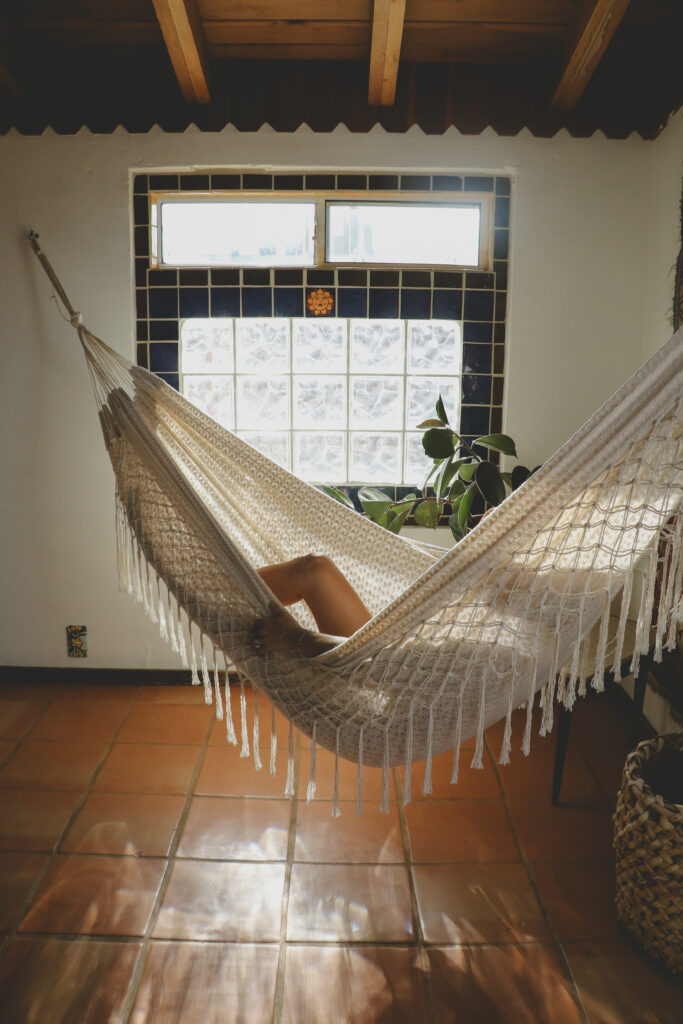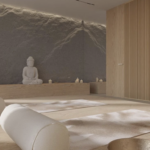Sleep is often the most underestimated pillar of health, yet it plays a crucial role in nearly every aspect of our well-being. From cognitive function and immune health to metabolic balance and longevity, sleep is the foundation upon which a healthy life is built. Unfortunately, modern lifestyles often disrupt natural sleep cycles, leading to chronic sleep deprivation that accelerates aging and increases the risk of various diseases.
Optimising your sleep doesn’t have to be complicated. With a few simple biohacks, you can significantly improve sleep quality, regulate your circadian rhythm, and enhance your overall longevity. Let’s dive into the science behind sleep and explore actionable strategies to help you achieve deeper, more restorative rest. If you’re a wellness expert looking to incorporate sleep optimization into your client offerings, consider exploring how ZenPass supports holistic wellness professionals with tools tailored to sleep, recovery, and long-term health.

The Science Behind Sleep & Longevity
The Role of Circadian Rhythm
Your body operates on a 24-hour internal clock, known as the circadian rhythm. This biological cycle regulates sleep-wake patterns, hormone production, metabolism, and even cognitive function. When your circadian rhythm is aligned with natural light-dark cycles, your body efficiently manages restorative processes, enhancing overall health and longevity.
Disrupting this cycle—whether through erratic sleep schedules, excessive blue light exposure, or high-stress levels—can lead to insomnia, metabolic imbalances, and accelerated aging. Aligning your habits with your natural biological clock is one of the simplest ways to optimize sleep and promote longevity.
Hormonal Balance & Sleep Quality
Two primary hormones dictate sleep patterns: melatonin and cortisol.
- Melatonin, the sleep hormone, is released in response to darkness. It signals your body that it’s time to wind down and prepare for rest.
- Cortisol, the stress hormone, peaks in the morning to help you wake up and should gradually decline throughout the day.
When melatonin production is suppressed—often due to blue light exposure or stress—it becomes harder to fall asleep and stay asleep. Meanwhile, elevated cortisol levels at night can lead to restlessness, disrupted sleep cycles, and decreased overall recovery.
The Link Between Sleep & Longevity
Studies have shown that poor sleep increases the risk of chronic diseases such as cardiovascular conditions, diabetes, neurodegenerative disorders, and even cancer. Conversely, quality sleep promotes cellular repair, enhances immune function, and slows down biological aging. Prioritizing sleep is one of the most effective longevity biohacks available.
Now, let’s explore actionable sleep biohacks to help you optimize your rest and enhance your lifespan.
Simple Biohacks for Better Sleep
Stick to a Consistent Sleep Schedule
Your circadian rhythm thrives on consistency. Going to bed and waking up at the same time every day—even on weekends—helps regulate your internal clock, making it easier to fall asleep and wake up feeling refreshed.
- Aim for 7-9 hours of sleep per night. Studies show that this is the optimal range for health and longevity.
- Set a fixed bedtime and wake-up time. Train your body to expect sleep at the same time every night.
- Avoid social jet lag. Sleeping in on weekends disrupts your rhythm, making Monday mornings harder.
By maintaining a structured sleep schedule, you train your body to optimize sleep efficiency, resulting in deeper, more restorative rest.
New to wellness coaching or setting up your sleep-focused practice? Our resource hub for new practitioners offers guides and tools to get started confidently.
Create a Sleep-Inducing Environment
Your bedroom should be a sanctuary for sleep, free from distractions that disrupt rest. Here’s how to optimize your sleep environment:
- Keep the room cool. The ideal temperature for sleep is 60–67°F (15–20°C).
- Block out light. Use blackout curtains to eliminate streetlights and early morning sun.
- Minimize noise. White noise machines or earplugs can help block disruptive sounds.
- Reduce blue light exposure. Blue light from screens suppresses melatonin production. Use blue-light-blocking glasses or enable “night mode” settings on devices. Holistic providers offering tech-assisted wellness strategies like light therapy can benefit from ZenPass’s flexibility in managing online or in-person wellness services all in one place.
- Invest in a quality mattress and pillow. Your sleep posture affects spinal alignment and overall comfort.
A sleep-friendly environment significantly improves sleep depth and quality, leading to better recovery and longevity benefits.
Practice Relaxation Techniques Before Bed
Stress is a major sleep disruptor. When your nervous system is overactivated, it becomes difficult to transition into a restful state. Incorporating relaxation techniques can help signal to your body that it’s time to sleep.
- Deep breathing: Try the 4-7-8 technique (inhale for 4 seconds, hold for 7, exhale for 8) to activate the parasympathetic nervous system.
- Meditation and mindfulness: Practices like guided meditation or Yoga Nidra can calm the mind and prepare you for sleep.
- Progressive muscle relaxation: Tense and relax different muscle groups to relieve stress and physical tension.
- Journaling: Writing down thoughts before bed can help clear mental clutter and ease anxiety.
These simple techniques can improve sleep onset and enhance overall sleep quality.
Avoid Stimulants & Heavy Meals Before Sleep
Certain substances and eating habits can negatively impact sleep.
- Caffeine and nicotine: These stimulants stay in your system for hours. Avoid them at least 6 hours before bedtime.
- Alcohol: While it may initially make you drowsy, alcohol disrupts REM sleep and reduces sleep quality.
- Heavy meals: Large meals before bed can lead to indigestion and discomfort. Aim to finish eating at least 2-3 hours before sleep.
Making mindful dietary choices can significantly enhance sleep efficiency.
Many solo wellness coaches use ZenPass to streamline their services, especially when offering personalized sleep and nutrition guidance. Discover how solo practitioners are growing with ZenPass.
Get Morning Sunlight Exposure
One of the simplest and most effective sleep biohacks is morning sunlight exposure. Natural light helps regulate your circadian rhythm by signaling to your body that it’s time to wake up.
- Spend at least 10-30 minutes outside in the morning. Sunlight triggers serotonin production, which later converts into melatonin at night.
- If sunlight isn’t available, use a light therapy lamp. This is especially useful in winter months or for those who work indoors.
Consistent exposure to natural light in the morning helps balance melatonin and cortisol levels, making it easier to fall asleep at night.
Practitioners who support clients with circadian health often run hybrid practices. Learn how ZenPass makes it easier for full-time and part-time wellness professionals to manage client sessions and results across modalities.
Exercise Regularly, but Not Too Late
Physical activity is crucial for deep sleep, but timing matters.
- Morning or afternoon exercise improves sleep quality. Engaging in movement during the day helps regulate energy levels and promotes deeper rest.
- Avoid high-intensity workouts close to bedtime. Late-night exercise can spike cortisol and body temperature, making it harder to wind down.
Moderate, regular exercise enhances sleep efficiency and supports longevity.
The Ripple Effect of Optimized Sleep
Optimizing your sleep doesn’t just improve rest—it influences nearly every aspect of your health:
- Mood & Mental Health: Better sleep enhances emotional regulation and reduces stress.
- Cognition & Memory: Restorative sleep boosts memory consolidation and cognitive function.
- Metabolism & Weight: Sleep plays a key role in appetite regulation and fat metabolism.
- Hormonal Balance: Sleep impacts everything from stress hormones to reproductive health.
- Gut Health: Circadian misalignment can disrupt gut microbiome balance, affecting digestion and immunity.
By making sleep a priority, you enhance not only your daily energy levels but also your long-term health and vitality.
Conclusion & Call to Action
Sleep is a non-negotiable factor in health, longevity, and performance. The biohacks outlined above—ranging from circadian rhythm alignment to relaxation techniques—are simple yet powerful ways to improve sleep quality and promote a longer, healthier life.
Want to take your sleep optimization journey to the next level? Join me for my interactive workshop on “Balancing Sleep, Light, and Circadian Rhythms” where we dive deeper into how your hormones interact and influence one another, and why achieving good quality sleep is the foundation of overall health and longevity.
For more advanced biohacking solutions, explore ZenPass, your go-to resource for evidence-based wellness strategies to enhance your sleep, performance, and longevity.
Start biohacking your sleep today—your future self will thank you.
Ready to grow your wellness business while helping clients optimize their sleep and energy?
With ZenPass Grow, you get everything you need to manage bookings, deliver personalized support, and build long-term client relationships—whether you’re just starting out or scaling your practice.
Explore ZenPass Grow and start turning your wellness expertise into lasting impact.



